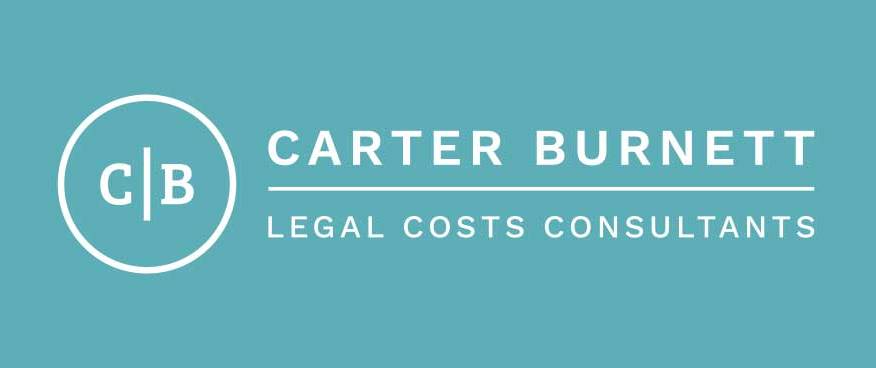Specialist Solicitor Should Recover Rates Above Guidelines
Posted on 17th August 2022 at 16:15
By Sean Linley, Costs Draftsman
In Lappet Manufacturing Company Ltd & Anor v Rassam & Ors [2022] EWHC 2158 (Ch) (12 August 2022) Mr Justice Adam Johnson allow hourly rates above the Guideline Hourly Rates on the basis that "specialist solicitors in specialist areas of activity should recover an uplift to reflect that specialism, where that is justified in the circumstances."
Hourly Rates
The case of Lappet Manufacturing Company Ltd concerned an Intellectual Property matter and the costs of interim applications which arose in the course of the litigation. The Claimant's solicitors, who were based in Nottingham claimed the following:
Grade A- £462 then £490.
Grade C - £293 then £330.
By comparison the SCCO Guideline Hourly Rates ("GHR") were £261 for Grade A and £178 for Grade C.
The Defendant's position was that the the rates should be limited to the Guideline Rates.
The Court considered this point, stating thus:
"11. Recently, in Samsung v. LG Display, Males J said at [6] that if a rate in excess of the guideline rate is to be charged, then a "clear and compelling justification must be provided", and it is not enough merely to say that a case is a "commercial case, or a competition case, or that it has an international element, unless there is something about these factors in the case in question which justifies exceeding the guideline rate".
12. In this case, I am satisfied that there is justification for an increase on the Nottingham Guideline rates. That arises from the complexity of the issues which arose on the two applications I disposed of. Both required specialist knowledge of the procedure applicable to intellectual property claims, and trade mark claims in particular. The intricacies will be readily apparent from my earlier Judgment. In my opinion, the Claimants were thus fully justified in engaging solicitors with the appropriate specialist knowledge, appropriate to advising on the issues in question and managing the conduct of the Defendants' applications. I do not regard this case as one in which the justification is put forward only in a generalised way: it is put specifically on the basis of the specialist procedural knowledge needed in order to act effectively. It therefore does not fall foul of the proscription set out by Males LJ in the Samsung case. Instead, as I see it, a departure from the Guideline Rates is justified on the basis of the long-established principle that specialist solicitors in specialist areas of activity should recover an uplift to reflect that specialism, where that is justified in the circumstances: see, e.g., ABS Company Limited v. Pantaenius UK Limited and others [2020] EWHC 3720 (Comm), per HHJ Pelling at [64]."
The Court allowed the following rates, "bearing in mind [...] the need for proportionality in the context of a claim which may only have a limited value [...]":
Grade A - £350 (circa 34% increase on GHRs)
Grade C - £230 (circa 29% increase on GHRs)
Counsel's Fees not justified because of what your opponent spent
A more discrete point which arose was whether Counsel's fees were disproportionate and should be reduced. The Claimant claimed fees of £8,400.00 for the Jurisdiction application and Transfer application. The Defendant contended that the same was disproportionate and offered £5,000.00.
The Claimants only argument against reduction was "that the Counsel fees claimed by the Defendants were in excess of £8,400." Mr Justice Adam Johnson accepted that this was true, noting that the Defendant's Counsel's fees totalled £12,840. He stated, however that "all this goes to show [...] is that the Defendant's fees for Counsel were also disproportionately high. It does not, in itself, justify the Claimants' counsel fees." The Court limited Counsel's fees to £6,000.
This argument is a reminder that comparing costs between the parties is not necessarily helpful and that just because both parties adopt a disproportionate approach, it does not follow that it justifies it.
Practical Points
It is a long-held principle that where specialist expertise is required then this may in turn justify hourly rates exceeding Guideline Hourly Rates (subject to the indemnity principle). Matters will need to be looked at on a case by case basis but in any costs litigation it is important that any complicating factors are made clear, in particular what specialist expertise was present and how it was applied to the case at hand. It's not enough for a fee earner to be specialist, that specialism must then be utilised for the purpose of the litigation.
This is another factor to be borne in mind where enhanced hourly rates are claimed and runs parallel to considerations as to whether a claim is 'run of the mill' or 'routine' in nature. Where it is neither of these, then a claim for rates above GHRs may well be justified.
The Counsel issue highlights that comparators will not always be helpful or persuasive and ought to be borne in mind as costs are incurred. It is clear that for the Court an unreasonable approach by one party will not justify the same of another.
Ensuring all relevant factors are set out and where specialist expertise is used it is made clear is the key to bolstering the recovering of rates above Guideline Hourly Rates.
That said we can see in the present claim that the rates allow, though around a third higher than GHRs were much less than was claimed. It's evident that there remains a balance to be struck.
Should you have any queries arising from this article or upon costs generally then please do not hesitate to get in touch with our friendly team either via phone 01482 534567 or e-mail info@carterburnett.co.uk
Tagged as: Counsel, Hourly Rates
Share this post:

